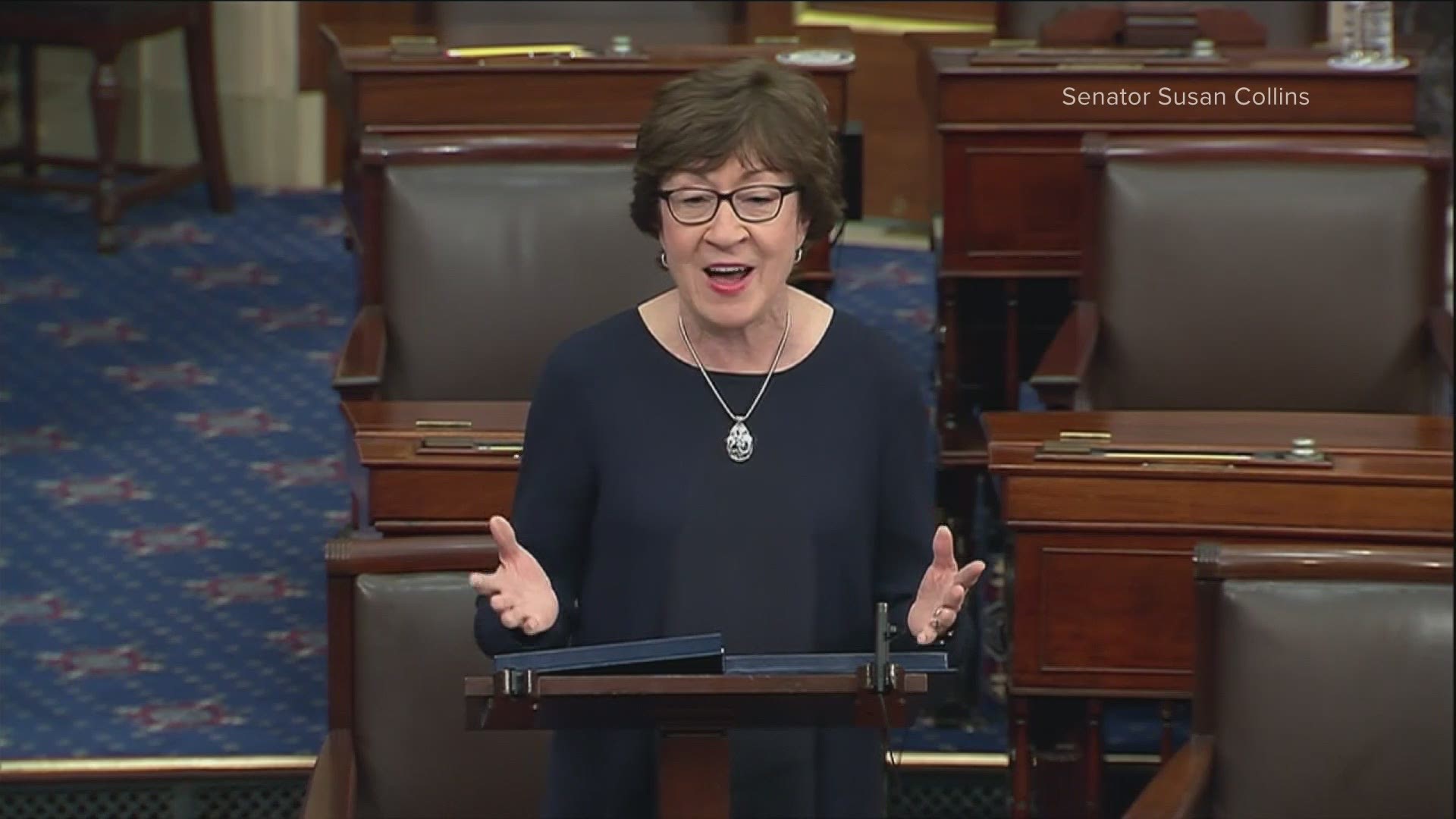FORT FAIRFIELD, Maine — Life during the past year has looked different for all American families. In the age of a global pandemic, there has been an increasing reliance on the Internet and remote connection -- but for some people, that hasn't been an option. It's why some lawmakers, including one of Maine's own, are hoping to address the digital divide between rural and urban America.
Sen. Susan Collins is co-sponsoring the bipartisan, $15 billion American Broadband Buildout Act, designed to bring high-speed Internet to unserved, rural communities. She is working with Democratic Nevada Sen. Jacky Rosen on this bill to advocate for equity when it comes to fast and reliable Internet -- an issue that hits close to home for many Mainers.
"It's not a privilege anymore to have broadband Internet. It is a necessity," Andrea Powers, the town manager of Fort Fairfield in Aroostook County, expressed frankly to NEWS CENTER Maine. She says she has seen firsthand how a lack of reliable Internet at home has impacted families.
"Our students are having to stay in cars at night to get their homework done," Powers said. "If they don't have (Internet) access at their homes, they're sitting on the library steps and using the library Internet."
Powers say Fort Fairfield needs to get access to fiber-optic broadband -- a good, strong, and solid system. She says the deficiency has affected a number of aspects of life during the pandemic for citizens -- like school, health care, and business. There is town-wide Internet for citizens -- but that option isn't always strong enough or convenient.
The problem goes beyond this town's borders. David Cowley lives 15 minutes away in Easton. He says last spring, his daughters did remote schooling, and it was challenging for them to join Zoom calls and submit assignments.
"We used our cell phones, but it was spotty at best," Cowley admitted.
Cowley says last year, he lobbied local Internet providers and reached out to state representatives, including Sen. Collins' team, asking them to install a radio tower on nearby Mars Hill. In May, Aroostook Technologies did -- and he says his family and neighbors now have reliable Internet, which has made a world of difference.
"Now, we actually use the Internet for fun," Cowley smiled. "We never used the Internet for luxury -- ever."
Last week, Collins took to the Senate floor, asking her colleagues to support the American Broadband Buildout Act. The bill would provide up to $15 billion in matching grants via the federal government to match state and Internet service provider funding, encouraging companies to invest in less populated areas. It's designed to help build the "last-mile" infrastructure that results in connectivity challenges for many Americans in unserved areas -- where broadband is unavailable at speeds that meet the Federal Communications Commission's standard.
"It is as important as the roads that connect us," Collins said about reliable Internet. "It connects us in a different way, but it's vital to our economy."
So far, the Maine State Chamber of Commerce, NCTA -- The Internet and Television Association, the Telecommunications Association of Maine, and Mission Broadband have endorsed this bill. The American Broadband Buildout Act would require that projects be designed as "future proof" -- so, infrastructure installed should be capable of delivering higher speeds, as broadband advances in the future. The bills says the FCC should also prioritize the funding of projects in states more at risk of falling further behind and provide grants to states for public awareness campaigns.
Beth Osler is the director of customer and industry relations for UniTel, a small, independent phone and Internet service provider that serves the Unity area. She says she understands the importance of the kinds of partnerships this bill would foster. Recently, UniTel was able to expand its services to all of Newburgh because of a grant from a state agency.
"For a long time, we've strongly believed that the only reason there are pockets where there isn't Internet service is because the private sector cannot make a business case that would allow them to make money," Osler expressed, noting the bill, though expensive, would likely solve that issue.
RELATED: Maine Broadband Coalition rolls out speed test and map to get a clearer picture of digital divide
The American Broadband Buildout Expansion Act is still in its beginning stages, but Collins says she hopes it will be included in an infrastructure bill. To read more about what this bill entails, click here.

